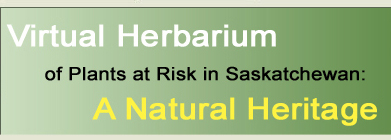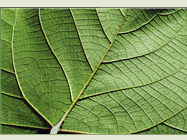
|

|

|

|

|

|

|
|
|
|
|
|
| Celastrus scandens L. | Species Image Gallery (opens in a new window) |
||||||
| TAXONOMY | |||||||
| Family: | Celastraceae | ||||||
| Genus: | Celastrus | ||||||
| Species Synonyms: | none | ||||||
| Common Names: | climbing bittersweet staffvine waxwork American bittersweet |
||||||
| DISTRIBUTION | |||||||
| Canada: | southeastern Saskatchewan – New Brunswick | ||||||
| Saskatchewan: | southeastern Saskatchewan; Souris River Valley | ||||||
| Ecoregion: | Moist Mixed Grassland | ||||||
| HABITAT | |||||||
| Saskatchewan: | moist, north or east-facing, shrubby ravine slopes | ||||||
| Associated Species: | American elm, ash, aspen, chokecherry, lambsquarter, Manitoba maple, pincherry, saskatoonberry, silverscale saltbush | ||||||
| RARITY STATUS | |||||||
| Provincial
Status According to Harms (2003): |
Endangered |
||||||
| Nature Conservancy Status: | G5 S1 |
||||||
| Saskatchewan
Species at Risk Status: |
None |
||||||
| COSEWIC Status: | None |
||||||
| Climbing bittersweet is endangered in Saskatchewan because it is extremely rare and is highly regionally restricted in the province. Most local populations are small and are threatened by possible planned developments. In the past, there has been limited horticultural trade of this species from Saskatchewan, which may have implications for genetic diversity. | |||||||
| SPECIES DESCRIPTION | |||||||
| Height: | to 5 m high (climbing on other species); stems to 18 m long | ||||||
| Roots: | taproot; spread by root suckers | ||||||
| Stems: | perennial, shrubby vine, to 2.5 cm in diameter, bark dark brown to reddish or gray, smooth or slightly ridged, pith white | ||||||
| Leaves: | alternate, stalked, axillary bud 1; stipules 0.6 mm, linear, membranous, falling off early; leaves 1 – 3 cm long, oval to round to broadly elliptic, base acute to rounded, tip long-tapered to rounded, margin saw-toothed to entire | ||||||
| Inflorescence: | terminal, 4 – 8-flowered, to 10 cm long, mixed with male, female and perfect flowers; flower stalks jointed | ||||||
| Flowers: | bracts 4 – 5, small; sepals 4 – 5, rounded, tip with an abrupt point; petals 4 – 5, regular, greenish; stamens 5; stigma 3-lobed | ||||||
| Fruits: | capsules approximately 8 mm broad, spherical, 3-valved, reddish; seeds 3 – 6, yellow to reddish brown, seeds embedded in red, fleshy appendages | ||||||
| |||||||